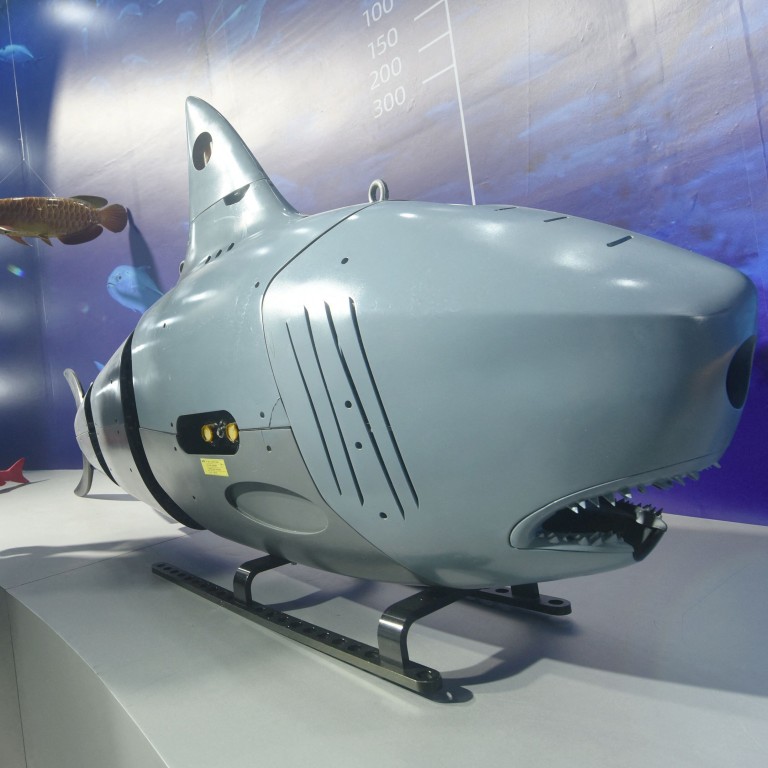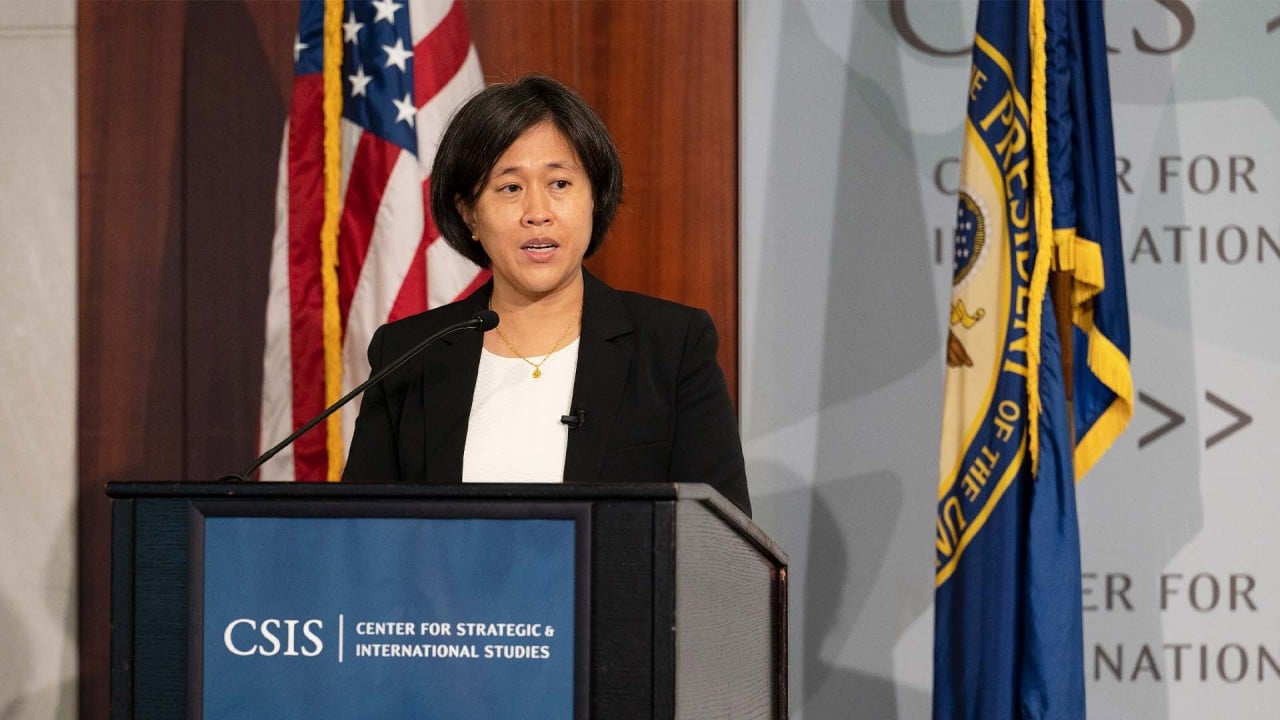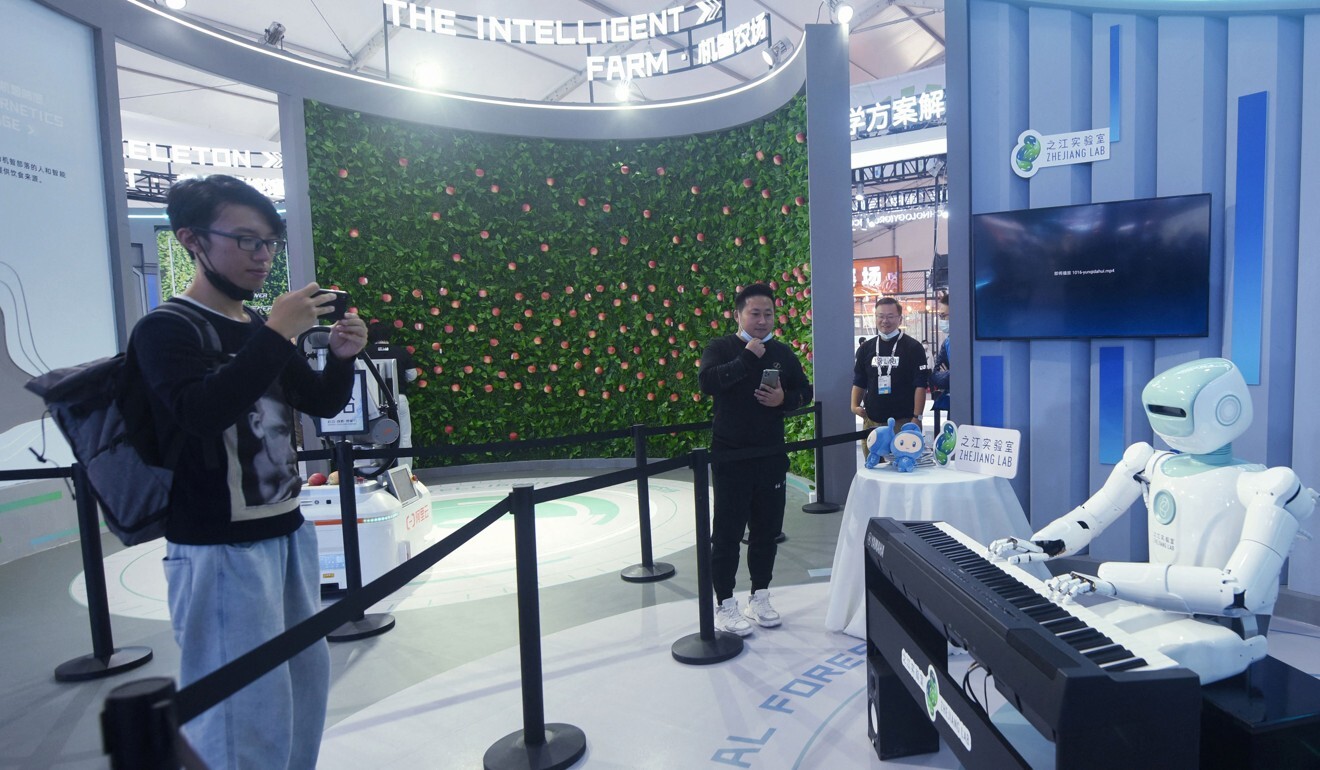
US intelligence warns American firms to protect 5 key technologies from China
- Artificial intelligence, quantum computing, bioscience, semiconductors, and autonomous systems are five critical tech areas, says US intelligence
- American firms and researchers need to pay more attention to protect research against threats from nation-states acquiring American know-how, officials add
American companies, academics and research communities need to pay more attention to protect talent and research against threats from nation-states that have been using legal and illegal means to acquire American know-how to dominate these technologies, according to the NCSC, a centre within the Office of the Director of National Intelligence.
The officials stressed they were not advocating for a complete decoupling from Chinese companies and research facilities, but said there is a need to understand that the Chinese government has comprehensive national plan to dominate in these fields.

02:18
US trade chief calls for ‘pragmatic approach’ in reveal of China strategy
Intelligence officials said they feared that the US would be entirely pushed out of these sectors crucial to the future.
Edward You, national counter-intelligence officer for emerging and disruptive technologies at NCSC, said it is not just about intellectual property loss, but the loss of a complete business model.
The American private sector has long been caught in the middle of US-China tech competition, struggling to balance its economic interests in doing business with the world’s second largest economy and the need to protect US tech. Washington has been increasingly concerned over the national security threats these business interactions may pose.
The intelligence community, which assesses tech threats by foreign nations each year, has been warning companies and academics against these risks from China. And the report published on Thursday was the latest push by the community to bring more attention to these threats.
China seeks to broaden digital trade under new five-year plan
The report said China has set its goal to achieve leadership in emerging technologies by 2030, and that the government has adopted a wide range of methods to obtain advanced technologies through – but not limited to – espionage, direct investment in American tech, academic collaboration, joint ventures, and acquisitions.
US companies and academics need to understand who they are doing business with by looking at the background of their suppliers, partners, and investors, the report added. American firms should also be aware that all entities in China are required by law to share information with the government when asked.
Companies should step up their guard against theft from both inside and outside the organisation through espionage and cyberattacks, the report said.
The NCSC highlighted the security risks surrounding foreign talent plans, such as China’s Thousand Talents Plan to recruit overseas tech talent. The report also shared best practices to guard against cyberattacks on personal gadgets, potential risks from social media interactions, as well as potential hacking risks while travelling to a foreign country.

Highlighting the competition in artificial intelligence (AI) talent, the report said that China “possesses the might, talent and ambition to potentially surpass the US as the world’s leader in AI in the next decade if current trends do not change”.
Health technology, according to You, is one vulnerable area. Chinese genomics company BGI, for example, acquired US gene firm Complete Genomics in 2013 and developed a neonatal genetic test with the Chinese military that had enabled it to collect data from around the world.
You also said another Chinese firm WuXi Biologics bought Bayer’s manufacturing plant in Germany, Pfizer’s manufacturing plant in China, and CMAB Biopharma Group in China.
Because of China’s strategic investments globally in biotech and pharmaceutical sectors, American bioscience companies that produce vaccines and other biotech products could potentially find themselves using Chinese controlled plants by default, You said.
“This is an example of disinformation, not borne out by facts, being spread to support a particular agenda,” a spokesperson for BGI said.
WuXi Biologics did not respond to requests for comment outside working hours.

